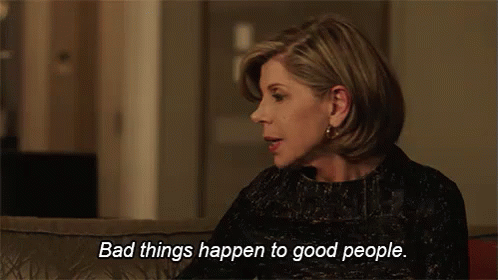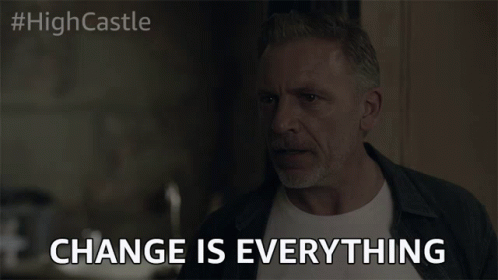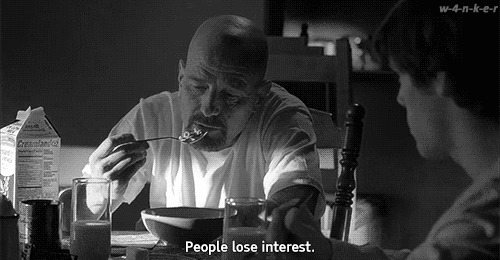Life is a rollercoaster of experiences—some lift us up, while others humble us in ways we never expected. The hardest lessons often shape us the most, influencing how we see ourselves, our relationships, and the world around us. These truths aren’t always easy to accept, but once we do, they become powerful tools for navigating life with wisdom and resilience.
Here are 10 hard truths I’ve learned, and I hope they help you, too.
1. Being too nice breaks you.
Kindness is a beautiful trait, but without boundaries, it can leave you drained. True kindness isn’t about always saying yes—it’s about knowing when to say no. If you constantly prioritize others at the expense of yourself, you risk burnout, exhaustion, and resentment.
Setting boundaries, practising self-care, and respecting your own needs are not selfish—they’re essential. After all, true kindness includes kindness to yourself.
2. Life isn’t fair—some people who deserve the sun will get the rain.
Hard work and kindness don’t always lead to success. You may see dishonest people thrive while good people struggle. It’s unfair, but it’s reality. Instead of dwelling on injustice, focus on what you can control—your actions, mindset, and resilience.
Life is unpredictable, but your perseverance will pay off in ways you may not expect. Remember, resilience is built in the storm, not under the sunshine.

3. People who notice your silence are the ones who truly care.
In a world full of noise and distractions, genuine connections are rare. If someone reaches out when you’ve gone quiet—not out of curiosity, but out of concern—cherish them. Those who truly care don’t just enjoy your presence; they feel your absence.
Surround yourself with people who see you, even in your silence—not just those who are there when it’s convenient.

4. Moving on is about acceptance, not forgetting.
Letting go doesn’t mean erasing the past; it means making peace with it. Painful experiences, lost relationships, and mistakes may leave scars, but those scars don’t define you; they prove you’ve healed. True acceptance means understanding that some chapters must close so new ones can begin.

5. Nothing lasts forever—accept change.
No matter how much you try to hold onto stability, change is inevitable. Relationships evolve, circumstances shift, and life forces you to adapt. Resisting change only creates suffering, but embracing it opens the door to new opportunities and growth. Instead of fearing what’s next, learn to flow with it.

6. Knowing your worth might leave you lonely at times.
It’s natural to crave acceptance and validation, but relying too much on others for approval can lead you to compromise your values and needs. True self-worth comes from within—it’s about recognizing your value regardless of what anyone else thinks. While standing firm in your worth may feel isolating at times, remember that loneliness is temporary. In the end, self-respect attracts the right people and opportunities that align with your values.

7. When trust is broken, “sorry” isn’t enough.
Trust is fragile—once shattered, words alone can’t repair it. Actions, consistency, and time are required to rebuild trust, and sometimes, it’s never fully restored. If someone repeatedly betrays your trust, don’t let empty apologies keep you in a cycle of disappointment. Protect your peace.

8. Choose peace over drama and distance over disrespect.
Not every battle is worth fighting, and not every relationship is worth saving. Protecting your peace means knowing when to walk away. If someone constantly disrespects you, argues for the sake of arguing, or drains your energy, it’s okay to choose distance. Prioritizing your well-being is never wrong.

9. People leave when they lose interest—no explanation is needed.
Sometimes, people drift away without warning. They stop texting, calling, or showing up, and it stings. You may find yourself wondering what went wrong or if you could have done something differently. But the truth is, some people are only meant to be in your life for a season. Instead of chasing after answers, accept their absence as a sign that they were never meant to stay.
It’s natural to feel hurt when someone leaves, but every ending brings clarity. Use it as an opportunity to reflect on what you truly want and need in your relationships moving forward. The right people won’t leave—you won’t have to convince them to stay.

10. Smile more, worry less.
Worrying won’t stop bad things from happening—it only steals your peace. Challenges are inevitable, but how you respond to them is within your control. A simple smile, even on the hardest days, can shift your mindset and attract positivity. Life is too short to be weighed down by unnecessary stress. Choose joy, even when it feels difficult.

Keep learning, keep evolving, and most importantly, keep prioritizing your peace.
X, Hani. ❤






 Views Today : 349
Views Today : 349 Views Last 30 days : 4478
Views Last 30 days : 4478




